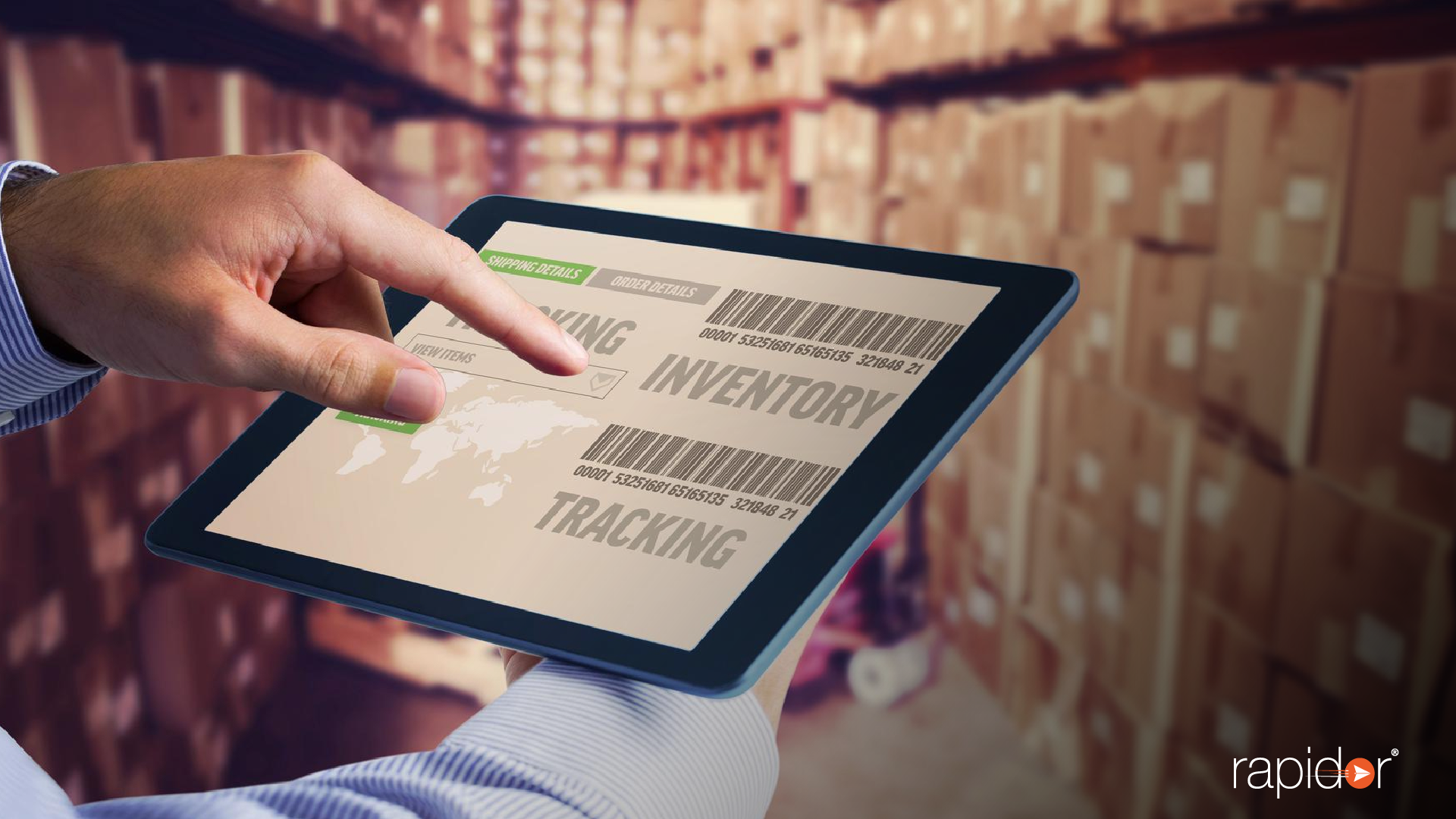In the dynamic world of small and medium enterprises (SMEs), scaling up sales operations presents a complex matrix of challenges.
From managing a dispersed sales force across different regions to aligning sales strategies with diverse market demands, SMEs often grapple with streamlining their processes efficiently. The key to unlocking this puzzle lies in embracing technology, specifically through sales automation software.
Sales automation emerges as a transformative solution, offering SMEs a way to manage field sales more effectively and enhance overall sales management systems.
In this blog, we will delve into how SMEs can leverage automated sales reporting and sales operation automation to drive expansion and efficiency. We introduce the innovative ‘Scalable Sales Matrix’—a concept that reimagines the role of sales as an integral component of automated business operations.
It proves pivotal for the geographical and strategic growth of SMEs.
So, join us as we explore this journey of technological empowerment and strategic growth.
Understanding the Challenges in SME Sales Operations
Small and Medium Enterprises (SMEs) often face a unique set of challenges in scaling up their sales operations, particularly when it comes to effectively managing a dispersed sales force.
The task of coordinating sales efforts across various regions can be daunting. Geographic disparities often lead to inconsistencies in sales approaches and performance. This fragmentation is one of the primary hurdles in maintaining a unified SME sales strategy, especially for businesses looking to expand their footprint.
Another significant challenge in the management of field sales is aligning sales strategies with diverse markets.
Each market segment has its own set of preferences, competition, and economic conditions. Developing a one-size-fits-all approach proves ineffective, making it imperative for SMEs to adapt their strategies accordingly.
However, this adaptation requires a deep understanding of each market, which can be resource-intensive and complex, particularly for SMEs with limited bandwidth.
Moreover, tracking and utilizing sales data effectively is a critical aspect of strategic sales management. Many SMEs struggle with gathering comprehensive sales data, let alone analyzing it for actionable insights.
Without a robust field sales management solution, it becomes difficult to track sales performance, customer preferences, and market trends in real-time. This lack of data-driven insights hinders strategic decision-making and the ability to respond swiftly to market changes.
Resource allocation also plays a pivotal role in the growth and expansion of SMEs. Inefficient sales processes can lead to misallocation of resources, be it manpower, time, or financial investment.

Without an automated sales reporting system, it becomes challenging to assess the return on investment in different sales channels, impacting the ability to capitalize on growth opportunities. Hence, it often results in missed opportunities and inefficient use of resources, which can stifle the growth potential of the business.
How Powerful is Sales Automation Software?
In today’s fast-paced business environment, the adoption of sales automation software has become a game-changer for SME sales strategy management.
This technology is more than a tool, revolutionising how sales are managed, tracked, and optimised.
Sales automation software refers to a suite of digital tools designed to automate key sales tasks, such as data entry, lead tracking, and customer communication. The benefits of employing such a system are manifold – it increases efficiency, reduces manual errors, and provides valuable insights for strategic decision-making.
One of the foremost advantages of sales automation software is its ability to streamline and enhance various stages of the sales process.
At the initial stages, it aids in efficiently managing field sales by automating lead generation and prospecting activities. As a result, it ensures sales teams spend more time engaging with potential customers rather than getting bogged down by administrative tasks.
Further, it simplifies the lead qualification process, enabling sales managers to focus on prospects with the highest conversion potential.
As we move further along the sales pipeline, this software demonstrates its prowess in managing customer interactions and follow-ups. Automated sales reporting comes into play, providing real-time data on sales activities, customer interactions, and overall sales performance. This level of detail and precision in reporting equips sales managers with the insights needed to make informed decisions, tailor their strategies, and quickly adjust to market demands.
Moreover, sales operation automation is integral in closing deals and post-sale activities. From generating quotes and processing orders to managing customer relationships and gathering feedback, every aspect is streamlined.
It speeds up the sales cycle and enhances the customer experience. This proves a crucial factor in building long-term business relationships and helps in the management of field sales.
The Scalable Sales Matrix: A New Paradigm
The ‘Scalable Sales Matrix’ introduces a transformative concept in the realm of SME sales operations, standing as a testament to the power of integration between sales and technology.

This paradigm shifts the traditional view of sales as a standalone function to a dynamic, interconnected system that’s seamlessly woven into the fabric of automated business operations.
For SMEs, the importance of the Scalable Sales Matrix lies in its holistic approach. It’s a synchronized ecosystem where every aspect of sales, from lead generation to customer retention, is optimized for scalability and efficiency.
Such a framework reimagines sales not as a linear process but as a multi-dimensional matrix that can expand and adapt as the business grows.
It ensures that sales strategies evolve in tandem with market changes and business needs, making it an invaluable tool for SMEs aiming to scale their operations and tap into new markets.
The matrix comprises several critical elements, each representing a core component of the sales process:
- Lead Generation and Management: It’s the bedrock of the matrix. Using automated tools for lead generation ensures a steady stream of potential customers. Advanced analytics and AI-driven insights help in identifying high-quality leads, significantly improving the effectiveness of sales efforts.
- Sales Process Automation: It involves automating routine sales tasks like data entry, scheduling, and follow-ups. Sales automation software plays a pivotal role here, freeing up sales representatives to focus on more strategic activities.
- Customized Sales Strategies: Tailoring sales approaches to different market segments is crucial. The matrix incorporates data-driven insights to develop targeted strategies for diverse customer groups, enhancing the effectiveness of sales campaigns.
- Order Processing and Fulfilment: Automated systems streamline the entire order process, from placement to fulfilment. This ensures accuracy, reduces turnaround times, and enhances customer satisfaction.
- Customer Relationship Management: Maintaining and nurturing customer relationships is integral. The matrix includes tools for continuous engagement and feedback, fostering long-term customer loyalty.
- Performance Tracking and Analytics: A robust field sales management solution is included for real-time monitoring and analysis of sales activities. This provides invaluable insights for continuous improvement and strategic planning.
Implementing Automated Sales Solutions
In the competitive landscape of SMEs, implementing automated sales solutions is crucial for sustaining and accelerating growth.
Central to this implementation is the integration of automated sales reporting, streamlined order processing, and effective inventory management systems. Each of these components plays a vital role in enhancing sales operations, driving efficiency, supporting informed decision-making, and in the management of field sales.
Automated Sales Reporting: A Cornerstone for Strategic Decisions
Automated sales reporting stands as a cornerstone in modern sales management systems. It goes beyond traditional reporting by providing real-time insights and data analytics.
This level of detail allows sales managers to track performance metrics accurately, assess the effectiveness of sales strategies, and identify areas for improvement.
With automated sales reporting, decision-makers have access to comprehensive data on sales trends, customer behaviour, and market dynamics.
The wealth of information is essential for making strategic decisions that align with the company’s goals and market opportunities.
Streamlining Order Processing: Enhancing Efficiency with Digital Tools
Order processing is another critical area where automation can bring significant improvements. By employing digital tools, SMEs can streamline the entire order-to-fulfilment cycle.
This includes automating order entry, confirmation, tracking, and delivery.
Such automation reduces manual errors, speeds up processing times, and enhances customer satisfaction. Digital tools also provide transparency in order tracking, enabling both the sales team and customers to have up-to-date information on order status, leading to a more efficient and reliable sales operation.
Automated Inventory Systems: Synchronizing Sales and Stock Levels
A crucial aspect often overlooked in sales operations is inventory management. Automated inventory systems play a pivotal role in aligning product availability with sales forecasts and market demand.
These systems provide real-time visibility into stock levels, helping prevent both overstocking and stockouts.
By closely integrating inventory management with sales data, businesses can ensure that they have the right products available at the right time, for meeting customer demands and maximizing sales opportunities.
Furthermore, this alignment helps in planning and optimizing inventory levels, ensuring that resources are utilized effectively, and capital is not tied up unnecessarily.
Successful Implementation of Sales Automation
The implementation of sales automation in SMEs heralds a transformation marked by tangible, measurable benefits.
Firstly, the adoption of a sales management system significantly enhances efficiency. Sales teams can dedicate more time to strategic tasks and customer engagement rather than administrative duties, thanks to the automation of routine processes.
This shift boosts productivity and improves job satisfaction among sales personnel.
Another key benefit is the accuracy and depth of insights gained from automated sales reporting.
The tool provides real-time data on sales performance, customer interactions, and market trends, enabling more informed decision-making and quicker adaptation to market changes.
Additionally, sales operation automation ensures streamlined order processing, leading to faster turnaround times and increased customer satisfaction.
Integrating Sales Automation into Overall Business Strategy: What Does it Mean?
Integrating sales automation into the overall business strategy of an SME is a strategic move that goes beyond mere operational efficiency.
It’s about embedding automated sales functions deeply into the business’s core, ensuring that every aspect of sales aligns with the broader organizational goals and market dynamics.
Strategic integration starts with recognizing sales automation software as a key driver for business growth.
This means using the insights gathered from these systems to shape business strategies, identify new market opportunities, and refine sales tactics.
It also involves ensuring that the sales management system is in sync with other business functions like marketing, customer service, and supply chain management. Hence, it creates a cohesive and unified approach to business operations.
Tailoring to market needs is another critical aspect of this integration. Different markets have unique demands and challenges. A one-size-fits-all approach in sales automation might not be effective.
Therefore, SMEs need to adapt their sales automation tools to suit these varying market requirements. This could mean customizing the functionalities of field sales management solutions to address specific regional sales challenges.
Or it could involve tweaking automated inventory systems to align with the consumption patterns of different market segments.
Is Sales Automation Here to Stay?
The implementation of sales automation stands as a benchmark in the journey of SME expansion.
Integration of automated sales reporting, field sales management solutions, and sales operation automation significantly enhances efficiency, fosters strategic decision-making and aligns sales processes with ever-evolving market demands.
These tools are facilitators of growth, along with being essential drivers that propel SMEs towards scalability and success.
As you navigate the complexities of expanding your business, consider the transformative impact of sales automation software. Embrace these solutions to streamline your sales operations, gain invaluable insights, and stay ahead in a competitive market.
Ready To Expand Your Business with Automation?
Now is the time to act. Equip your business with the tools it needs to flourish.
Contact Rapidor for more information or visit our website to book a demo. Implement sales automation solutions today and unlock the potential for remarkable growth and efficiency in your SME.


